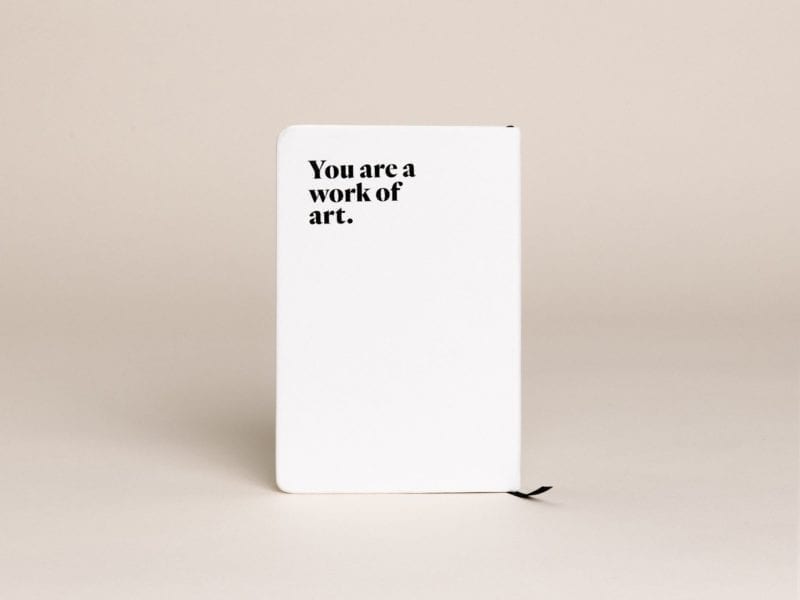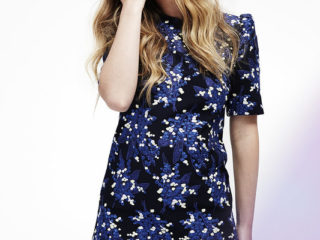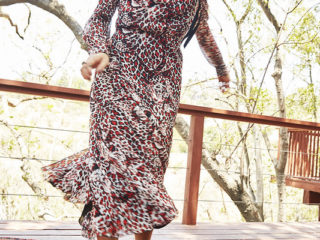For as long as people have been writing, they have also been journaling: putting pen, pencil or quill to paper to observe, process and feel their way through life.
In the 9th century, Chinese philosopher Li Ao kept a diary recording his travels through Asia. A few hundred years later, Leonardo da Vinci would fill more than 7,000 pages with his ideas, inventions and studies. Finally, in the 20th century, female writers such as Sylvia Plath and Virginia Woolf detailed their intimate lives and thoughts in journals, which have since been published.
Although I’m assuming my own journals will never be put to print, I find myself on common ground with these historical figures—at least in the sense of thinking through life with a pen in my hand. As someone who has obsessively journaled throughout the last 10 years, I know what it feels like to need to write down what I’m feeling about a particular situation. Doing so not only helps me process my own sometimes tumultuous emotions, it acts as a meditative practice to open and end my day.
That being said, putting pen to paper doesn’t necessarily generate a flow of easy prose. If I’m processing a decision, navigating confusion or working through relational pain, then sorting out my own thoughts, even on paper, can feel impossibly challenging.
Putting pen to paper doesn’t necessarily generate a flow of easy prose.
Learn to Ask Questions
Asking questions has given me clear direction and a point of navigation in my practice of journaling. When I’m tempted to “journal in circles, ”processing my thoughts again and again without reaching a point of resolution, I simply begin to write down targeted, purposeful questions. Much like giving myself my own homework assignment, I expect thoughtful responses to these questions.
I’m still in the process of learning to do this well, but along the way, I’ve identified a few strategic questions that always seem to bring clarity and revelation.
What lie am I believing?
This is always a good question to ask, but especially during a season of insecurity or fear. In doing this yourself, you may be surprised how quickly you’re able to identify lies you’re believing about your identity or your circumstances. Asking yourself what the truth is becomes equally important in this exercise.
You may be surprised how quickly you’re able to identify lies you’re believing about your identity or your circumstances.
What are my goals?
Take a step back and evaluate your long-term goals. It may be that you’re going through a challenging time because you’ve stayed true to pursuing your dreams, and you’re simply experiencing the difficulty of overcoming hurdles. It may be that you’ve lost track of what you’d really like to accomplish, and you’re feeling adrift. In any case, asking this question can help you refocus and stay envisioned for the future.
What am I grateful for?
This question—this question—is the most important one. When you can name what you’re grateful for, even if it’s as simple as “this steaming cup of coffee” or “the way my best friend smiles at me,” then everything else seems to fall into place. Challenge yourself, and see if you can make a list of 100 things you’re grateful for. You may be surprised to discover how easily people, circumstances and things (both tangible and intangible) come to mind.
When you can name what you’re grateful for, then everything else seems to fall into place.
Finally, review your responses. One of the most valuable takeaways of journaling is that you keep record of how you’ve changed. If asking questions brings you clarity, then continue to remind yourself of what you’ve learned. You’ll be thankful for that thoughtfully scribbled anchor of truth in the days, weeks, months and years to come.
For your very own Darling journal, be sure to visit the Darling Shop.











1 comment
I do have a journalling practice – been doing it daily since 2012! This is such an interesting approach to journalling. Thanks for sharing. 🙂
–
Charmaine Ng | Architecture & Lifestyle Blog
http://charmainenyw.com